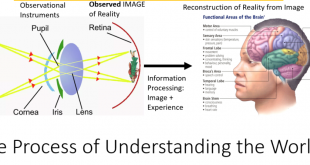from Asad Zaman While the car is functioning well, one does not usually open up the engine. But when the car breaks down, it becomes necessary to open it up to see what is wrong. This is the situation today, as the failure of econometric models manifested itself in the global financial crisis, as well as many other occasions. The tragedy is that these same failed models continue to be used today; no serious alternatives have been developed. The reason for this is that the methodology used...
Read More »Open thread March 19, 2021
Tags: open thread
Read More »Working on comments
We are in the process of making changes to the comment section of Angry Bear to tackle the issue of comments disappearing or being delayed in posting. We need feedback from readers on their experience Friday and over the weekend: e-mail Dan at [email protected] or Bill at [email protected]. ...
Read More »Income inequality, USA, 1951-2019
Bayesianism — a patently absurd approach to science
from Lars Syll Mainstream economics nowadays usually assumes that agents that have to make choices under conditions of uncertainty behave according to Bayesian rules (preferably the ones axiomatised by Ramsey (1931), de Finetti (1937) or Savage (1954)) — that is, they maximise expected utility with respect to some subjective probability measure that is continually updated according to Bayes theorem. If not, they are supposed to be irrational, and ultimately — via some “Dutch book” or...
Read More »Why are most textbooks still proprietary?
from Blair Fix Today a rant about textbooks. Every year governments spend billions of dollars on public education, teaching students knowledge that was itself created by publicly funded research. Yet each year, university students must pay anew for this information by purchasing high-priced textbooks. It needn’t be this way. Most university textbooks are written by tenured (or tenure-track) professors. These are people who are paid by the public to generate and disseminate knowledge....
Read More »The Long Term Consequences of Economic Downturns
Chairman Powell, Secretary Yellen, and President Biden have recently spoken about the long term consequences for many of economic downturns. More should, more often. The Media should recognize how important this is; ask the question whenever it needs to be asked. The Congress should put this front and center in any and all discussions about economic policy. Why? Because millions of Americans never recovered from 1979-1980. Millions more never...
Read More »Neo-Ricardian economics — rigorous and totally irrelevant
from Lars Syll I claim that Sraffian economics, however rigorous in its use of the simultaneous equations method … is irrelevant to our understanding of the real world and, judging by its failure to draw any policy implications, is largely irrelevant to the major concerns of modern economists … This is not a judgment based simply on my opinion, which is ultimately no better than yours. Relevance is not a matter for individual opinion but a social judgment of the community of professional...
Read More »The roaring revival of political economy
from Hardy Hanappi and Real-World Economics Review For human societies, contrary to other species, the direction of their development is always co-determined by the way that their members produce a shared interpretation of their environment in order to achieve a common goal[1]. How to find a commonly shared view of our global society has become increasingly difficult in the decades since 1945. One reason certainly is the development of the global production system itself, which rapidly...
Read More »Take a tour of CO2 since 800,000 years ago
Take a tour of CO2 since 800 thousand years ago. pic.twitter.com/PJonTpxrQI — Kris Karnauskas (@OceansClimateCU) December 4, 2019
Read More » Heterodox
Heterodox



